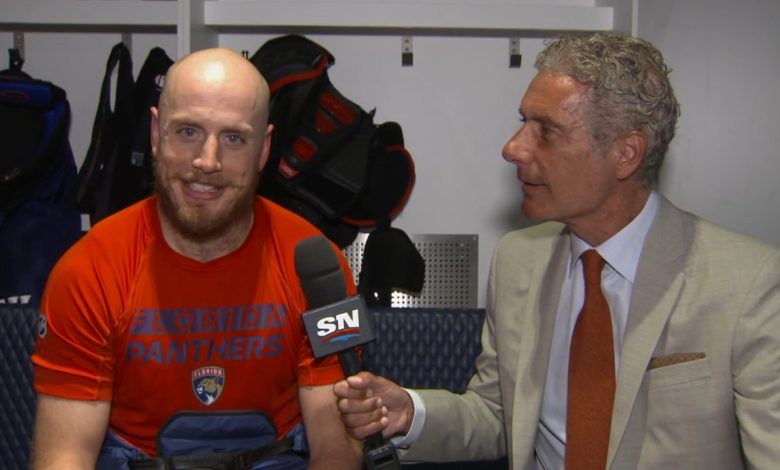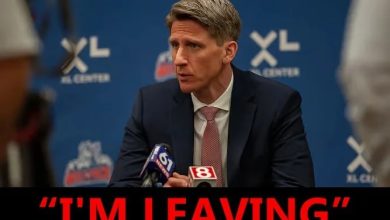NHL Analyst Proposes Unconventional Strategy for Connor McDavid’s Upcoming Contract Negotiations

Connor McDavid, widely regarded as one of the greatest talents in the NHL today, is approaching a critical juncture in his illustrious career: negotiating his next contract with the Edmonton Oilers. As one of the highest-paid and most influential players in the league, McDavid’s contract negotiations inevitably attract intense scrutiny from media, fans, and league insiders alike. Recently, a well-known NHL analyst has suggested an unconventional strategy for McDavid’s upcoming contract talks — a move that could reshape the dynamics not only of this negotiation but potentially of future superstar contracts in the NHL.
The Context: Why McDavid’s Next Contract Matters
Connor McDavid’s current contract, signed in 2017, is a monumental eight-year deal worth $100 million, carrying an average annual value (AAV) of $12.5 million. This deal cemented McDavid’s status as the league’s top player and placed him among the highest earners in professional hockey. However, McDavid’s contract is set to expire after the 2025-26 season, making his next deal pivotal for both the player and the Oilers organization.
The stakes are high: McDavid’s contract will set the financial and strategic tone for the Oilers’ roster construction, salary cap management, and championship aspirations. For McDavid, the deal represents not only financial security but also a statement about his value and legacy in the sport.
Conventional Wisdom vs. Unconventional Strategy
Traditionally, superstar players like McDavid seek to maximize their earnings with long-term contracts that provide both high salary and security. Given McDavid’s dominance, it’s expected that his next contract will break new ground in terms of total value and annual pay, potentially surpassing the current highest salaries in the NHL.
However, the NHL analyst in question — respected for his deep understanding of salary cap mechanics and player valuation — has proposed a different approach. Instead of a standard mega long-term deal, the analyst suggests McDavid consider a shorter-term contract with unique performance incentives and flexible clauses.
The Proposed Unconventional Strategy
The analyst’s unconventional strategy centers on a shorter-term “bridge” contract that emphasizes:
- Performance-Based Incentives: Rather than locking in a massive guaranteed salary, McDavid’s contract would feature bonuses tied to specific achievements — such as point totals, playoff success, and individual awards.
- Opt-Out Clauses: The contract would include player-friendly opt-out provisions, allowing McDavid to reassess his value and renegotiate sooner if the market or his performance warrants it.
- Cap Flexibility for the Team: A shorter, incentive-heavy contract would free up salary cap space for the Oilers, enabling them to invest in supporting players, which is critical for building a championship-caliber roster around McDavid.
- Potential Revenue Sharing: The deal could include provisions tied to team revenue or playoff performance, aligning McDavid’s compensation with the Oilers’ overall success.
Why This Strategy Makes Sense
For McDavid:
- Flexibility: A shorter-term contract with opt-outs gives McDavid the ability to capitalize on his continued elite performance. Should he sustain or elevate his play, he can leverage a new contract at potentially even higher rates sooner than with a traditional long-term deal.
- Incentivization: Performance bonuses reward McDavid’s competitive drive and ensure he’s compensated handsomely for reaching personal and team milestones.
- Legacy Management: This approach allows McDavid to maintain control over his career path and earnings in an evolving NHL market, which could shift due to league revenue changes or new collective bargaining agreements.
For the Oilers:
- Cap Management: The Oilers face significant salary cap pressures with key players demanding raises and incoming prospects needing contracts. A more flexible McDavid contract helps maintain balance.
- Team Building: By not locking up a large portion of the cap in a single long-term contract, Edmonton can invest in complementary players—defensemen, goaltenders, and secondary scorers—to surround McDavid with a stronger supporting cast.
- Motivation for Success: Linking McDavid’s compensation to team performance can foster a culture of accountability and collective drive toward winning the Stanley Cup.
Potential Drawbacks and Challenges
While the unconventional strategy offers clear advantages, it is not without potential risks:
- Uncertainty for McDavid: Shorter contracts mean less long-term security. Injuries or performance dips could reduce future earnings or leverage in negotiations.
- Market Dynamics: The NHL’s salary cap system and revenue streams fluctuate. If league-wide revenues increase dramatically, McDavid’s shorter contract might mean missing out on maximum long-term value.
- Negotiation Complexity: Incentive-laden contracts are inherently more complex and require detailed structuring, which can prolong negotiations and increase the potential for disputes.
- Fan and Media Reaction: Fans and media often expect superstar players to secure maximum guaranteed contracts as a sign of dominance and status. A shorter, flexible contract could be misinterpreted as lack of commitment or confidence.
Historical Comparisons and Precedents
This unconventional approach is not entirely unprecedented. Several NHL stars have embraced shorter-term contracts with performance incentives to maintain flexibility and maximize earnings. For example, players like Auston Matthews and Johnny Gaudreau signed shorter deals before committing long-term, allowing them to adjust their contracts based on evolving market conditions.
In other major sports leagues, such as the NBA and MLB, players have used similar strategies to balance guaranteed money with flexibility, leveraging opt-out clauses and performance bonuses to optimize earnings and control.
What This Could Mean for the Future of NHL Contracts
If McDavid were to adopt this unconventional approach, it could have ripple effects across the NHL. Superstar contracts often set benchmarks, and McDavid’s deal is likely to influence future negotiations league-wide.
A shift toward more flexible, performance-based contracts could:
- Encourage teams to build more balanced rosters rather than focusing salary around a few superstars.
- Increase the prevalence of opt-out clauses and incentive structures.
- Foster a more dynamic market where player values adjust rapidly to performance and economic conditions.
- Align player compensation more closely with team success, potentially changing the culture of the NHL.
Reactions from the NHL Community
The analyst’s suggestion has sparked spirited debate among fans, journalists, and former players. Some praise the creativity and strategic thinking, emphasizing the benefits of flexibility and cap management. Others remain skeptical, believing that McDavid’s unmatched talent warrants a long-term, guaranteed contract reflecting his status.
Edmonton Oilers management has yet to comment publicly on this proposed strategy. However, insiders suggest that the team is open to exploring all options to secure McDavid’s future while maintaining competitive balance.
McDavid’s Perspective: What Might He Consider?
While no official statements have been made regarding McDavid’s preferences, several factors are likely to influence his decision:
- Financial Security: As a player with young family responsibilities, guaranteed long-term income is attractive.
- Legacy and Status: McDavid may want a contract that cements his place as the highest-paid player in NHL history.
- Team Competitiveness: He will likely prioritize playing on a team with a genuine chance to win the Stanley Cup.
- Market Trends: McDavid and his agent will closely monitor NHL salary trends, potential collective bargaining changes, and other superstars’ deals.
Connor McDavid’s next contract negotiations are shaping up to be among the most significant in NHL history. The suggestion by a prominent NHL analyst to pursue an unconventional, incentive-based, shorter-term contract introduces a fascinating wrinkle into what many expected to be a straightforward mega-deal.
Whether McDavid and the Edmonton Oilers embrace this strategy remains to be seen, but the very discussion reflects the evolving nature of professional sports contracts in an era of complex salary caps, shifting revenues, and heightened competition.
For fans, players, and teams alike, McDavid’s contract saga will be one to watch closely — a potential blueprint for the future of NHL superstar contracts and a critical chapter in the story of one of hockey’s greatest players.









